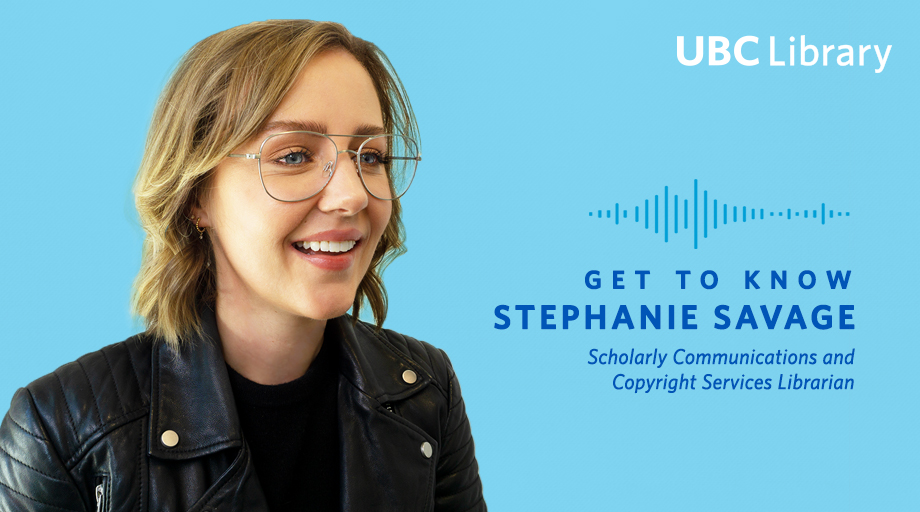
Stephanie Savage has spent the past two years developing her career and a new job portfolio as UBC Library’s Scholarly Communications and Copyright Services Librarian. “I was able to be creative in initiating projects, developing connections across the library and campus, and taking the opportunity to do things that hadn’t been done before.”
After living in Montreal, Japan and Winnipeg, Stephanie returned to Vancouver, ready for the next step in her career. Stephanie started her librarianship journey as a UBC iSchool student in the Master of Library and Information Studies (MLIS) program. She recalls learning about copyright during her studies, “I learned a lot about what the job would entail and it kept me interested and I decided to continue to pursue it in my professional career”.
Stephanie takes the initiative to start her own projects, build expertise and expand her skillset beyond the library: “We are lucky to be in a place where some of the most exciting research in the world is going on, so I always try to remember to go to talks or events on campus,” she says. “It could be an opportunity to get broader insight to what’s going on and what’s important to people on campus.”
In her day-to-day, Stephanie helps graduate students, researchers and faculty members with scholarly communications and copyright compliance. Stephanie is also looking for ways to engage with different groups from the UBC community, and is now working on an Alma Mater Society (AMS) grant-funded project that involves undergraduate student journals.
With her growing network and advocacy for open scholarship practices, she hopes to contribute to her industry by seizing opportunities to work with colleagues across multiple institutions on a local and national level.
Thinking about the next steps in her career, Stephanie is looking forward to publishing her first research paper and hopes to build campus fluency around Open Access and Open Educational Resources. “I believe in the work and it’s important to think about the research and publication process being available and equitable. If we can change people’s workflows or get them to consider publishing Open Access or to put materials in cIRcle, I think that cumulatively has an impact.”
For early career professionals, Stephanie shares, “it’s really important in the beginning to make that effort and get out of your branch or wheelhouse and make connections early on. A lot of the way innovation happens, in my experience, is through serendipitous connections with people.”
Learn more about Scholarly Communications and Open Access